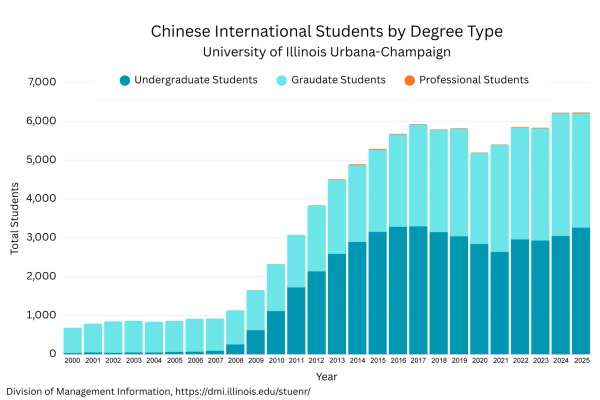Soaring gas prices affecting students
Jul 29, 2005
Last updated on May 11, 2016 at 09:30 p.m.
It was not long ago that people complained about gas prices reaching $1.45, but current gas prices cause anything below $2.10 to seem like a bargain. The high cost of gas has been a constant topic in the economy and politics, but also hits close to home with students having to budget in the extra expenses.
“It’s really getting ridiculous,” said Greg Roginsky, sophomore in LAS.
Many students already live on a tight budget. While living at school they pay bills and other expenses that might be avoided if living at home. For many, the fluctuating gas prices add an extra burden when planning a monthly budget.
“Since it’s gone up it’s been difficult to travel,” said Jane Choi, senior in engineering. “You have to be more careful with how you handle your money.”
Get The Daily Illini in your inbox!
Many students living on campus for the summer try to make trips home to see family and friends, but high gas prices can limit these plans. According to Choi, it costs nearly $40 for her to go home to Chicago. Some students also avoid driving around town.
“It definitely puts a down on trying to go out with friends and pushes the decision to stay on campus,” Choi said. “We’ll try and crunch six people in the car.”
The best way to work around the price increases is to pay attention to gas station signs. According to Roginsky, his family tries to fill up the car whenever they see a station with lower prices.
At the same time that gas prices have made driving expensive, the heat wave during the past weeks has made walking uncomfortable. Some people may choose buses as a cheap alternative for traveling around Champaign-Urbana. However, the Mass Transit District (C-U MTD) has not recognized an increase in riders due to gas prices. In the past year, the C-U MTD saw a 2 percent increase in the amount of riders, but this is considered normal growth.
“The gas crisis in the seventies had a lot more impact,” said Bill Volk, managing director of CU-MTD. “Driving habits are not changing a great deal and there doesn’t seem to be as much complaining about gas prices as 30 years ago.”
Gas prices affected the MTD in other ways. Buses burn diesel fuel, which has had higher price increases than gasoline. The MTD has absorbed the extra expenses through various sources. According to Volk, the MTD can deal with high gas prices in the short run, but continued increases could create problems.
People do not have to worry about oil prices raising their power bills. Customers do not see cost changes for electric and gas companies. According to Shirley Swarthout, spokesperson for AmerenIP, electric rates have been frozen since 1998 and have decreased by 20 percent during that time. Gas power charges have also remained stable – natural gas is drilled domestically and is therefore unaffected.
Oil prices affect AmerenIP and other businesses by increasing their fixed costs.
“It definitely increased our overhead cost,” said Jeremy Brandow, office manager for Champaign Heating and Air, “especially with all our service vehicles.”
For service companies like Champaign Heating and Air, higher costs often are reflected onto the customers through increased service rates and increased mileage charges.





